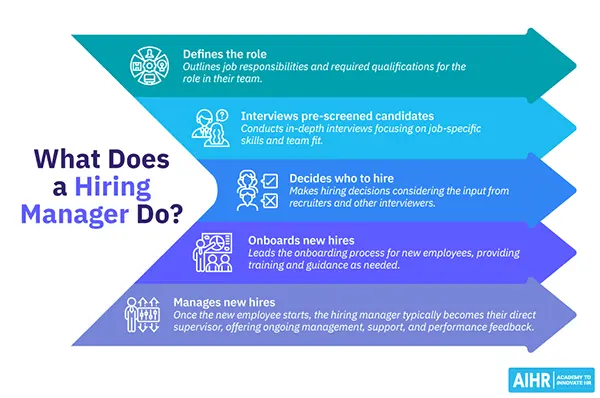
In today’s economic spectrum, the need for hiring a good range of expert managers is becoming a job with multiple unwanted hurdles. A recent study shows that 83% of employers believe recent graduates are prepared for entry-level work, and a majority see value in degrees as signals of desirable traits like trainability and conscientiousness, not just skills. (Source)

Regardless of these factors, there are so many other attributes that matter in the practical landscapes that differentiate the ideal candidate for the seat from other recipients.
These qualities can include writing a perfect audit for the organization or maintaining the best coordination with different teams using varied tactics to ensure multi-level intellect.
Well, that’s not it! In this blog post, we are going to explore more layers of this segment, giving valuable insights to the readers.
Let’s begin!
Key Takeaways
- Understanding the perception of institutional reputation and accreditation recognition
- Looking at the role of transferable skills and the alignment with organizational norms
- Decoding the subconscious bias and influence of peers in the office
- Discovering the role of adaptivity to sustain in the long run without compensating for the emotional resonance
Perception of Institutional Reputation
When evaluating higher education credentials, the institution’s reputation can have a major impact. Hiring managers may not only consider the degree earned, but also where the degree was earned.
The value of a candidate’s credentials may be enhanced with respect to the reputation of an institution established by its accreditation status, the quality of academics, and the success of its alumni. An institution perceived as more obscure or unaccredited may demand more scrutiny for quality, even when the candidate has matched expectations of competency based on skills.
This perception is subtle but pervasive in determining job opportunities. For candidates, an institution’s reputation is often an important factor in professional credibility and career advancement.
The Subtle Weight of Accreditation Recognition
Now, this is the most important factor in the entire hiring process of the manager, due to the numerous verification metrics of the institutions from which they belong. Hiring authorities always get confused when the topic is nationally vs regionally accredited institutions that carry degrees of different international norms and education patterns.
Intriguing Insights

This infographic shows the practices of hiring managers.
Alignment with Industry Standards
Higher education qualifications are more useful for applicants when they are in alignment with current industry needs and professional requirements. Hiring managers frequently seek assurance that graduates are equipped with practical knowledge, relevant skills, and insights into the workplace’s changing needs.
Institutions that develop their programs in conjunction with industry professionals or accreditation bodies ensure the competencies that students gain are relevant in today’s context. A better alignment enhances not only employability, but also employer confidence in hiring an applicant who they expect will fill success-oriented roles.
The Role of Transferable Skills
Today, the relevance of your degree is just not enough to prove your worthiness for your desired job; now the teams and HRs also look for analytical competence and knowledge beyond the academic subject matter. These practical implementations allow companies to understand the real-life caliber of the personnel that are being recruited.
Impressions from Interview Performance
While academic qualifications and the reputation of higher education institutions are paramount, performance in an interview is generally the final determinant for hiring managers. The way a candidate carries themselves, speaks about their experiences, and displays confidence can strongly influence hiring managers’ perceptions of the candidate’s overall ability.
Excellent communication skills, problem-solving style, and curiosity to learn in an interview validate the knowledge and credentials from higher ed.
Meanwhile, a lackluster or unprepared interview could perhaps even outweigh excellent credentials.
Subconscious Bias Toward Familiarity
Hiring managers in higher education frequently make decisions that are implicitly biased by a preference for familiarity (meaning that they favor individuals who look like they do), with respect to credentials from well-known institutions, educational locales, or work or life experiences that are the same. This is regardless of the other applicants’ prior skills and expertise.
By recognizing the implicit factors that give rise to young aspiring academics being potentially overlooked for hire. Colleges and universities can begin to implement more fair hiring practices that seek talent based on experience & potential (not just a name), supporting a more honest and diverse hiring practice in higher education.
Influence of Peer Recommendations
Some conversations and peer recommendations often reshape the overall workforce integrity of the organizations. Although they are not in the record, they can create a major impact on the growth and sustainability of the company. Calm and confident collaborations can also boost the morale of the new joiner in the team.
Interesting Facts
Employers value soft skills such as communication, critical thinking, problem-solving, and a proactive attitude as highly as technical knowledge, according to a Redalyc study. (Source)
The Quiet Role of Professional Networks
Except for basic education degrees, hiring managers quietly assess whether a candidate’s educational background positions them within influential professional networks. Many institutions organize multi-approach systems like seminars and workshops where students can foster connections with industry leaders, impacting their availability of future opportunities.
The Factor of Career Trajectory
The degree of candidates always embraces their perseverance and impactful progression towards their studies and goals. These credential also traces a rough line of their career trajectory that showcases their interests and areas of discomfort, which will ultimately impact their professional life
Subtle Expectations of Professionalism
One of the biggest hidden red flags in this segment for the recipient is nothing but a lack of basic professionalism and punctuality in the daily regimen of the highly educated students. This might give them good opportunities at the start, but due to their behavior, they won’t be able to sustain it in the long run.
Adaptability to Organizational Culture
While after clearing all the interviews that are necessary interviews to prove your worthiness and qualification, the next challenge that you are going to face will check your mental and emotional capability rather than your intellect.
This is because adapting to organizational culture is very new for a joiner, as they have to interact and coordinate with different teams and staff members to execute crucial tasks.
Emotional Resonance and Narrative
It is mostly believed that emotional resonance doesn’t play any type of influential role in the corporate environment, but this is not completely true. Being a manager requires an attitude of perseverance and equality, which can be obtained by facing real-life issues and dealing with them. This stability is something natural, and even academic excellence cannot replicate it.
Long-Term Organizational Value
To conclude this entire concept, we just want to say that beyond everything, the long-term organizational is what something which matters the most. A person who can fuel up the retention rates and overall coordination can sustain in the long run with desired perk enhancements.
Their expertise should also help to polish the new talents of the industry and help them grow. If you are still having some doubts, then make sure to read this page again and keep striving for more!
Ans: Yes, they can ask technical questions that are relevant to your past qualifications, current trends, and your strong skills. These questions help them assess the critical and analytical thinking of the person.
Ans: They decide everything by looking at all the stats and documents that are provided to them and effectively verify them using knowledge and practical exercises during interviews conducted in several rounds.
Ans: Although they work in the same spectrum, but a recruiter focuses on finding and screening candidates, while a hiring manager makes the final decision on who to hire.